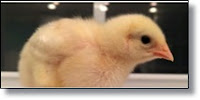Many Americans are in fear of and concerned about Ebola Virus Disease (EVD) spreading to the United States. We have compiled some FAQ’s with regard to companion animals and the possibility of disease and zoonosis.
Here are highlights from both the American Veterinary Medical Association (AVMA) and Centers for Disease Control and Prevention (CDC) about EVD and transmission in our pets.
Please visit the CDC or AVMA websites for the most up to date information as this information as it can change quickly.
From the AVMA:
Q:
What is the risk of exposure to the Ebola virus in the U.S.?
A: The relative risk of exposure to the Ebola virus in the U.S. is extremely low, as there have been only a small number of isolated human cases and no known animal cases.
Q:
Is there a vaccine for Ebola?
A: Unfortunately, there are no approved vaccines, drugs, or products specifically for Ebola available for purchase online or in stores.
Q:
Can dogs or other pets get the Ebola virus from humans, or transmit it to them?
A: Although EVD is a zoonotic disease, there has not been evidence of its transmission to humans from dogs. Indeed, it is not even known if dogs are capable of contracting and then transmitting the disease. A study analyzing the 2001-2002 Ebola virus outbreak in Gabon found antibodies against the virus in about 25% of dogs in the affected area, but no virus was found in them. Furthermore, none of the animals showed signs or died of the disease during the study period. The study only indicated that the animals had encountered the Ebola virus.
Q:
What if a pet is in contact with an Ebola virus patient?
A: The World Small Animal Veterinary Association (WSAVA) calls for quarantine, not euthanasia, for dogs exposed to Ebola.
The CDC recommends that if a pet is in the home of an EVD patient, veterinarians, in collaboration with public health officials, should evaluate the pet’s risk of exposure (e.g. - close contact and exposure to blood or body fluids of an EVD patient.) Appropriate measures, such as closely monitoring the exposed pet while using necessary precautions, should be taken based on that evaluation.
Q:
What about risks of Ebola from other animals?
A: The World Organization for Animal Health (OIE) states there is no evidence domestic animals play an active role in the transmission of disease to humans. Researchers believe that in Africa the spread of Ebola is a result of handling bushmeat (wild animals hunted for food) and contact with infected bats. The human patient can then spread the infection through direct contact (not through air, water, or generally by food.)
From the CDC:
Q: Here in the United States, are our dogs and cats at risk of becoming sick with Ebola?
A: The risk of an Ebola outbreak affecting multiple people in the United States is very low. Therefore, the risk to pets is also very low, as they would have to come into contact with blood and body fluids of a person with Ebola. Even in areas in Africa where Ebola is present, there have been no reports of dogs and cats becoming sick with Ebola.
Q:
Can I get Ebola from my dog or cat?
A: At this time, there have been no reports of dogs or cats becoming sick with Ebola or of being able to spread Ebola to people or animals.
Q:
Can my pet’s body, fur, or paws spread Ebola to a person?
A: We do not yet know whether or not a pet’s body, paws, or fur can pick up and spread Ebola to people or other animals. It is important to keep people and animals away from blood or body fluids of a person with symptoms of Ebola infection.
Q:
What if there is a pet in the home of an Ebola patient?
A: CDC recommends that public health officials, in collaboration with a veterinarian, evaluate the pet’s risk of exposure to the virus (close contact or exposure to blood or body fluids of an Ebola patient). Based on this evaluation as well as the specific situation, local and state human and animal health officials will determine how the pet should be handled.
Q:
Can I get my dog or cat tested for Ebola?
A: There would not be any reason to test a dog or cat for Ebola if there was no exposure to a person infected with Ebola. Currently, routine testing for Ebola is not available for pets.
Q:
What are the requirements for bringing pets or other animals into the United States from West Africa?
A: CDC regulations require that dogs and cats imported into the United States be healthy. Dogs must be vaccinated against rabies before arrival into the United States. Monkeys and African rodents are not allowed to be imported as pets under any circumstances.
Each state and U.S. Territory has its own rules for pet ownership and importation, and these rules may be different from federal regulations. Airlines may have additional requirements.
Q:
Can monkeys spread Ebola?
A: Yes, monkeys are at risk for Ebola. Symptoms of Ebola infection in monkeys include fever, decreased appetite, and sudden death. Monkeys should not be allowed to have contact with anyone who may have Ebola. Healthy monkeys already living in the United States and without exposure to a person infected with Ebola are not at risk for spreading Ebola.
Q:
Can bats spread Ebola?
A: Fruit bats in Africa are considered to be a natural reservoir for Ebola. Bats in North America are not known to carry Ebola and so CDC considers the risk of an Ebola outbreak from bats occurring in the United States to be very low. However, bats here are known to carry rabies and other diseases.
Q:
Where can I find more information about Ebola and pet dogs and cats?
A: CDC is currently working with the U.S. Department of Agriculture, the American Veterinary Medical Association, and many other partners to develop additional guidance for the U.S. pet population. Additional information and guidance will be posted on this website, as well as partner websites, as soon as it becomes available.
Please Share!
FOLLOW US!


 We have a bunch of small fluffs in the form of baby hamsters who are looking to find homes! You can visit them at our Georgia Avenue Adoption Center.
We have a bunch of small fluffs in the form of baby hamsters who are looking to find homes! You can visit them at our Georgia Avenue Adoption Center.




























































